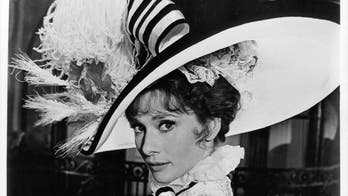A bizarre trial leaves Trump questioning reality as the jury can reach a guilty verdict without agreeing on the underlying crime. Allegations of falsified records and a mysterious secondary crime create a surreal legal maze with confusing instructions from the judge.

In the twilight zone of the New York v. Trump trial, former President Donald Trump finds himself trapped in a surreal "Alice in Wonderland" farce. The hallucinatory nature of the proceedings stems from District Attorney Alvin Bragg's bizarre case, built on warped legal interpretations and distorted facts.
A jury of twelve must now navigate this lunacy, tasked with reaching a verdict on issues that defy logic. Prosecutors allege that Trump falsified business records by labeling payments to ex-porn star Stormy Daniels as "legal expenses." However, the purpose behind this accounting decision remains a mystery.

The Trump Organization controller testified that he alone made the decision to use that term, as the payments were made to Trump's lawyer, Michael Cohen, who handled the legal transaction. A bookkeeper corroborated this testimony, casting doubt on the prosecution's case.
Even if jurors ignore this evidence and find the records were falsified, they must then guess at the secondary crime Trump allegedly committed to conceal. But what is this cryptic crime, exactly? No one knows, not even the jury.

The Sixth Amendment guarantees defendants the right to know the nature and cause of the accusations against them. The prosecution's deliberate refusal to specify the secondary crime violates this fundamental right. Only in closing arguments did prosecutors reveal the enigma, claiming it was either a federal or state election crime, which contradicts itself.
To further complicate matters, Judge Juan Merchan allows jurors to consider a third option, a tax law crime, barely mentioned during the trial. Evidence showed that reimbursements to Cohen were doubled to cover taxes, yet prosecutors now claim it was not taxable income, creating a legal paradox.

Bragg's twisted narrative alleges that Trump intended to commit fraud, but it remains unclear who he defrauded. Taxpayers were not affected, voters had already cast their ballots, and the Federal Election Commission concluded the payments were not campaign contributions.
Prosecutors suggest that Trump conspired to influence the 2016 election, which is not a crime. Campaigns exist for that very purpose. It becomes a crime only if unlawful means are employed. Paying Daniels for a non-disclosure agreement and suppressing negative stories are perfectly legal, despite prosecutors using them to create an illusion of wrongdoing.

In an outrageous ruling, Merchan prohibited both sides from discussing the relevant law during closing arguments, depriving the jury of essential guidance. Merchan's antics reveal a disregard for due process rights, as he instructed jurors that they need not agree unanimously on the secondary crime, allowing four jurors to adopt one crime while four others choose a different one.
Unanimous jury decisions are a cornerstone of constitutional law, ensuring fairness and preventing arbitrary verdicts. But in Trump's trial, the cherished principles of justice have been turned upside down. As the jury enters deliberations, Trump can only wonder if he has fallen down the rabbit hole into a legal wonderland where guilt can be established without consensus, leaving him questioning the very essence of justice.










